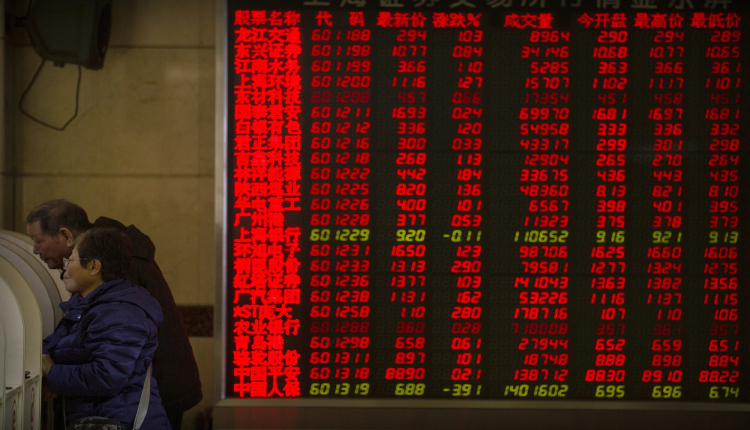Asian stock markets fell on Thursday due to concerns about a potential trade war between the US and China, with chip-related stocks leading the decline.
Meanwhile, the Japanese yen surged to a six-week high amid speculation of intervention by Japanese authorities last week.
The MSCI broadest index of Asia-Pacific shares outside Japan fell 0.57 per cent, with South Korea’s tech-heavy KOSPI leading the decline, down nearly one per cent.
The strength of the yen and a sharp drop in chip stocks pushed Japan’s Nikkei down two per cent.
Chinese stocks also retreated as investors awaited policy announcements from a key leadership gathering in Beijing. Both the Shanghai Composite Index and the blue-chip CSI300 Index dipped by 0.4 per cent and 0.5 per cent, respectively.
News reports suggesting the US might impose tighter restrictions on advanced semiconductor technology exports to China, caused chip stocks and the Nasdaq to plummet. Nvidia and Apple were among the companies affected.
Investor concerns rose when Donald Trump suggested that Taiwan should pay the US for defense as it benefits from the chip business.
This caused Taiwan Semiconductor Manufacturing Co’s (TSMC) shares to drop sharply before its second-quarter earnings report. TSMC shares fell three per cent in early trading, while the broader index was down nearly two per cent.
Market divergences are currently influenced by US politics, according to Matt Simpson, Senior Market Analyst at City Index. The return of broken correlations is likely as markets assess the potential impact of the upcoming US elections.
Financial markets are now fully expecting a 25-basis-point rate cut by the Federal Reserve in September.
This comes after Federal Reserve officials acknowledged on Wednesday that “the central bank was “closer” to cutting interest rates, citing the progress in inflation easing close to its two per cent target.
Consequently, the US dollar remained under pressure. The euro held steady at $1.09385, near the four-month high it reached on Wednesday. Sterling also maintained its strength, hovering close to a one-year peak at $1.30065.
Investor focus now shifts towards the European Central Bank’s policy decision later in the day.
The central bank is widely expected to maintain its current stance, but comments from officials will be closely scrutinised for clues regarding the timing of the next potential rate cut.
The US dollar index, measuring the greenback’s strength against a basket of six major currencies, edged slightly higher to 103.69, just above the four-month low of 103.64 touched on Wednesday.
The Japanese yen surged to a six-week high against the dollar at 155.37 in early trading, following a sharp rise on Wednesday that fuelled speculation of intervention by Japanese authorities to support the weakening currency.
Data from the Bank of Japan (BOJ) suggests Tokyo may have purchased nearly six trillion-yen last week to bolster the yen from the 38-year lows it has endured since the beginning of the month.
The yen has depreciated by 9.5 per cent against the dollar so far in 2024. This wide interest rate differential between the US and Japan has created a lucrative carry trade opportunity.
In the commodities market, gold prices edged slightly higher by 0.18 per cent to $2,462 per ounce, lingering just below the record high of $2,483.60 set on Wednesday.
Attribution: Reuters










